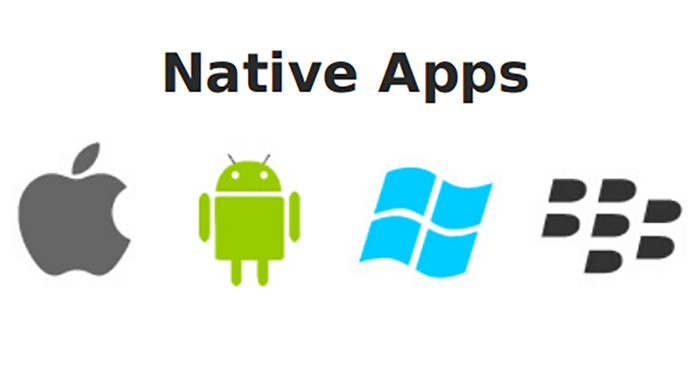“Because it is not about app development, but efficient development”.
In past few years, people have rapidly migrated from desktop devices to handheld ones. With the growth of technology, mobile devices facilitated and enabled us to do everything that a desktop could. Cell phones, tablets, palm tops and more, there are a lot of ways to work today.
So, what do you do if you’re looking at connecting to your audience through their smart devices? For connecting with mobile users, businesses need to get their presence on small screen devices with apps. So, what kind of app do you need to choose? Should it be a native app, or a hybrid one or the one built on HTML5? It’s important to understand the pros and cons of each – for one, which one is cheap?
Native App

Basically, native apps are those that uses native APIs of device and calls for high expense. These applications need to be programmed separately for separate platforms. For instance, the same app, with same user interface and features will be programmed twice, once for iOS and once for Android. A native app for one platform (say iOS) wont be compatible with other (say Windows). Moreover, the SDKs (XCode for iOS, Eclipse for Android, Visual Studio for Windows) and the programming language (Objective C for iOS, Java for Android, C# for Windows) will also differ. Thus, it calls for high expense but provides a better user experience.
HTML5 App
Unlike Native App, apps built on HTML5 are less expensive as they are compatible with all platforms. But with merit of low budget, there are some demerits too. The developer cannot make them available in the app store, as they are not dedicated to a particular platform. In easy language, they can be understood as web applications, which can smoothly run on the low resolution of mobile devices. They are made responsive, using HTML5, CSS and JavaScript. Programmers do not need to code them only once
Hybrid App
Similar to HTML apps, hybrid apps are also developed using HTML5, CSS and JavaScript but they are wrapped in some native application. For instance, we can consider a web application running in the native browser window (and not Chrome or Mozilla) like UIWebView (similar to WebView in Android). These jobs of wrapping the app into native applications, or making the use of Native APIs are done very easily using application like Cordova. These apps are easy to maintain and fast to develop.
Your app development strategy needs to take into account your audience – your apps will have to be tailored to your audience needs. Go in for hybrid apps if you’re looking for best of both the worlds.
Blog Source- https://www.mindinventory.com/blog/native-vs-html5-vs-hybrid-the-review/

